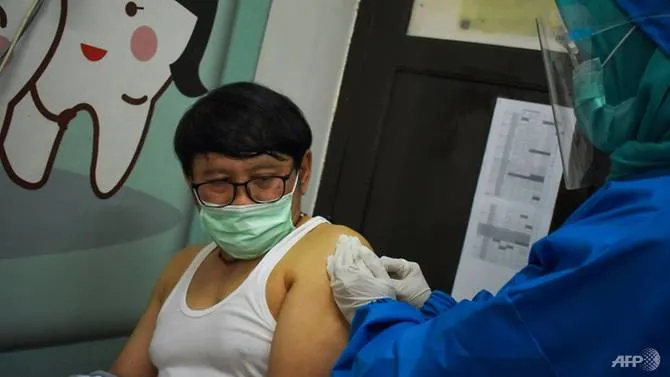Indonesia places risky guess on Chinese COVID-19 vaccines
10 December, 2020

Indonesia is betting that China-made coronavirus vaccines might help it tackle among the worst outbreaks found in Asia, but analysts warn it is a wager that could keep them holding a good high-interest diplomatic IOU.
Beijing has promised poorer nations priority access to its inoculations, so that they can repair a graphic tarnished by the pandemic, which started in the central Chinese metropolis of Wuhan.
This week, Indonesia received 1.2 million doses of a COVID-19 vaccine made by China's Sinovac, with another 1.8 million set to reach next month, but experts say this gain access to could have strings attached.
"China's 'vaccine diplomacy' isn't unconditional," Ardhitya Eduard Yeremia and Klaus Heinrich Raditio explained in a paper published this month by the Singapore-based Yusof Ishak Institute.
"Beijing may use its vaccine donations to progress its regional agenda, particularly on sensitive concerns such as its statements in the South China Sea."
Indonesia started man trials of the Sinovac vaccine this summer, and it has not yet been approved by Chinese or perhaps Indonesian regulators.
Jakarta has signed deals for a lot more than 350 million vaccine doses from different suppliers, including AstraZeneca, but the majority should come from Chinese suppliers, including Sinovac and Sinopharm, according to a Duke University vaccine tracking project.
"The vaccine cooperation with China is the most visible," said Evan Laksmana, a senior researcher at the Jakarta-based Center for Strategic and International Studies.
"That creates probable implications down the road (and) from what extent Indonesia would be highly determined by the Chinese medical supply chain over the long term."
Indonesia, the world's fourth-most populous country with 270 million persons, has reported over fifty percent a million coronavirus attacks and around 18,000 deaths. Low costs of tests means these established figures are widely regarded as well below the reality.
'CLEVER BALANCING GAME'
China is Indonesia's best trading partner and the Southeast Asian country is home to numerous projects, including a good high-speed train brand, that are portion of Beijing's globe-spanning Belt and Street infrastructure building blitz.
However, the partnership has its problems.
In January, Indonesia deployed fighter jets and warships to patrol the Natuna islands after Chinese coast guard and angling vessels entered the region on the edge of the Southern China Sea.
Jakarta has since toned down its response, turning to diplomatic protests instead.
The United States views Jakarta as an integral strategic partner since it pushes back against China's growing influence and controversial armed service build-up in the South China Sea.
"At the moment, Indonesia is playing a fairly clever balancing game to avoid identification with one among the two wonderful powers," said Marcus Mietzner, a co-employee professor in Australian National University.
"(Indonesia) has already made it known that it could not allow a potential Chinese request to create a military foundation in Indonesia. While it is not clear whether China basically made such a request, its rejection was observed with great fulfillment in Western capitals."
But with the US epidemic surging, Washington is targeted about fighting the coronavirus in the home and might not manage to knock Beijing off its vaccine diplomacy blitz.
And despite some disputes, the partnership with China remains crucial for Jakarta, and it may get itself indebted diplomatically to Beijing because of the vaccines.
"Up to now, there is but to come to be any serious quid pro quo with regards to the vaccine," said researcher Laksmana.
"But everyone in Jakarta appreciates ... it could be harder for all of us to generate a series of moves in international policy or another thing that might (destruction) the partnership with China."
Source:
TAG(s):
